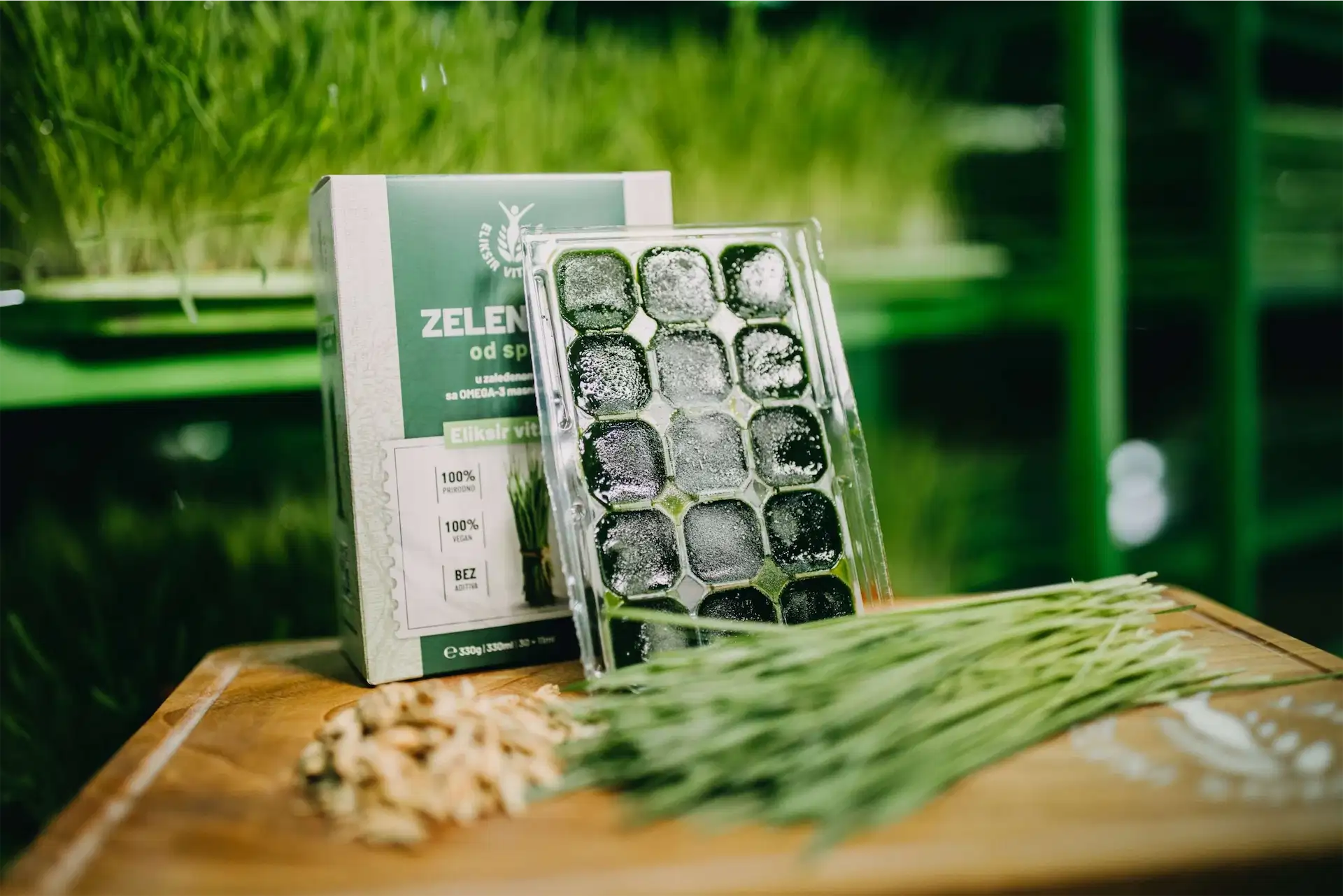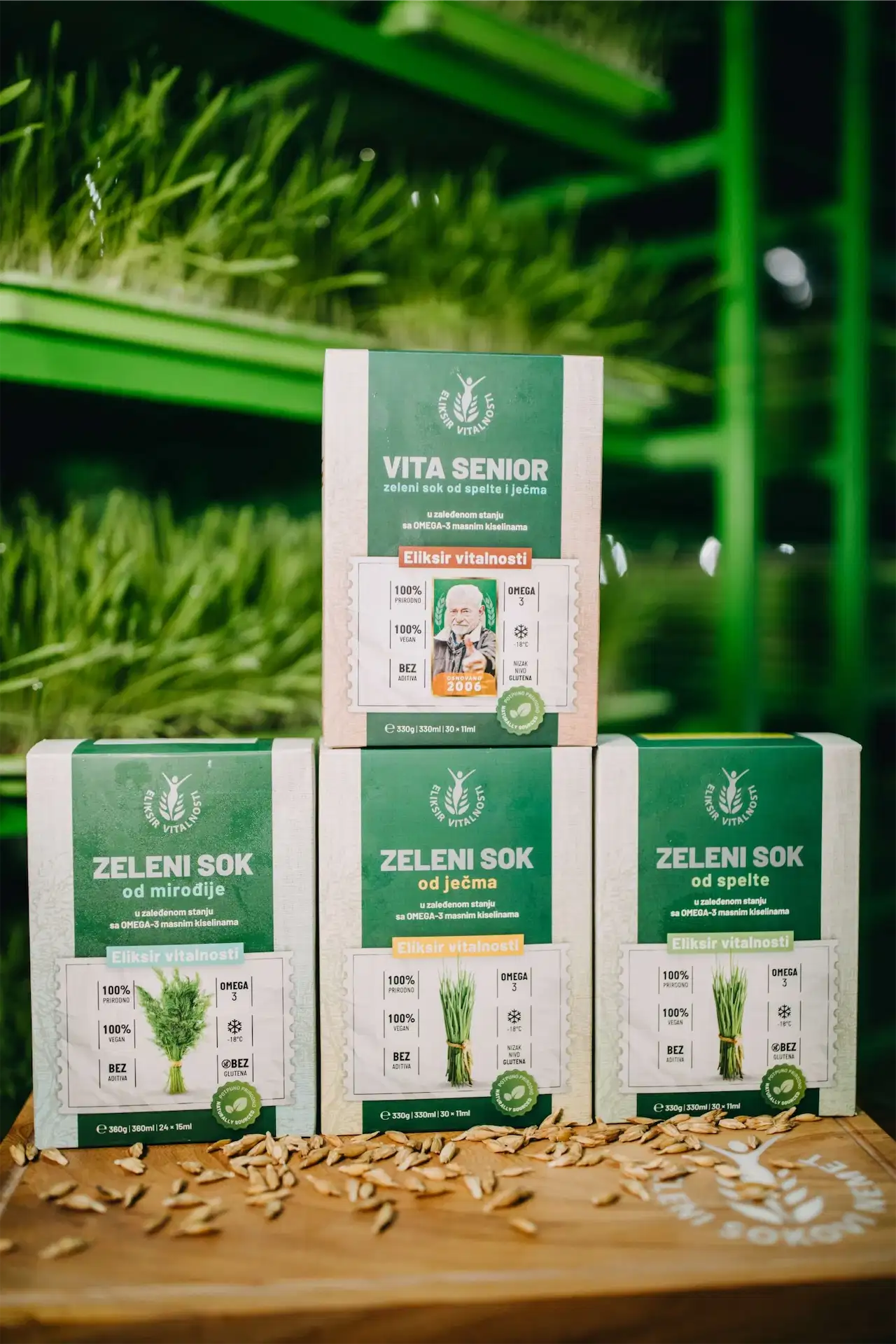Boosting Immunity

Boosting Immunity Naturally
Immunity is our body's defense mechanism – a complex system of cells, tissues, and organs that protects us from viruses, bacteria, and other pathogens. When the immune system functions well, we hardly notice it; however, as soon as it weakens, we become susceptible to frequent infections, fatigue, and compromised health. Therefore, natural strengthening of immunity is an important topic for anyone who wants to maintain vitality and health in the long term. Read on to learn how to strengthen your immunity from within – through proper nutrition, herbal support, and healthy habits – to provide your body with the best defense throughout the year, not just seasonally.
How does the immune system work?
The immune system consists of specialized cells (such as white blood cells), tissues and organs (such as bone marrow, spleen, lymph nodes) that work together to recognize and neutralize foreign invaders. There are two levels of immune response: innate immunity (the first line of defense that reacts quickly and non-specifically to any threat) and acquired immunity (a targeted response that creates antibodies specific to a particular pathogen after contact). When everything functions properly, this defense system protects us from colds, flu, and more serious infections, and even from malignant changes in cells.
However, the immune system is not indestructible. It depends on balance in the body and can be weakened by various factors. Also, during defense, the body initiates inflammatory processes as a weapon against infection – but if inflammation is chronically present (due to stress or poor diet), it can impair immune system function. It is important to understand that strong immunity means balanced immunity: neither overactive (which leads to allergies or autoimmune diseases) nor too weak. Fortunately, we can significantly influence the functioning of the immune system through lifestyle choices and natural strengthening methods.
Main Causes of Immunity Decline
Many aspects of daily life can lead to immunity decline. Here are the most common reasons for weakened immunity to pay attention to:
- Unbalanced diet and nutrient deficiency: A poor diet (fast food, high sugar, and processed products) can lead to a deficiency of important vitamins and minerals needed for the normal functioning of the immune system. For example, a lack of vitamin C, zinc, selenium, or protein directly weakens the body’s defense. A monotonous diet can also slow down metabolism and lead to toxin accumulation – which becomes too much of a burden for the immune system.
- Chronic Stress: Prolonged exposure to stress raises cortisol hormone levels, which over time suppresses the immune response. Therefore, people under constant stress get sick more often. Stress also encourages bad habits (poor sleep, unhealthy food, smoking) that further weaken immunity.
- Lack of sleep and rest: During deep sleep, the body regenerates cells and produces key elements of the immune system (such as cytokines). Chronic lack of sleep disrupts this regeneration – people who do not get enough sleep are more prone to infections and recover more slowly from illnesses.
- Physical inactivity: Moderate physical activity actually promotes the circulation of immune cells throughout the body and reduces stress. Conversely, a sedentary lifestyle can contribute to obesity and poorer circulation, which hinders the immune system’s work. (On the other hand, extremely strenuous workouts without adequate recovery can temporarily deplete immunity, so moderation is important.)
- Bad habits and toxins: Smoking drastically damages the respiratory tract lining and destroys protective cilia, making it easier for infections to enter. Excessive alcohol consumption suppresses the production of white blood cells. Exposure to pollution, chemicals, and environmental toxins also burdens the immune system – the body spends resources on detoxification instead of defending against microbes.
- Compromised gut flora: It may be surprising to learn that about 70% of immune system cells are located in the intestines. Healthy gut microflora (good bacteria in our intestines) is crucial for strong immunity – it helps train the immune system on what is harmful and what is beneficial. The use of antibiotics, poor diet, and stress can disrupt this flora, weakening immune defense.
Understanding these causes helps us identify which areas of life we can influence to naturally strengthen immunity. In the following sections, we will thoroughly examine these natural methods for boosting immunity.
Natural Immunity Strengthening Through Diet
A balanced, varied diet is the foundation of a strong immune system. What we eat directly provides the building blocks and fuel for our defense cells. For how to strengthen immunity from within, start with your plate:
- Abundance of fruits and vegetables: Fresh fruits and vegetables are rich in vitamins (A, C, E, K, B complex) and antioxidants that protect immune cells from damage and stimulate their activity. For example, citrus fruits, berries, peppers, and kiwi are rich in vitamin C, known for contributing to immune cell function and antibody production. Dark green leafy vegetables (spinach, kale), carrots, pumpkins, and sweet potatoes are rich in beta-carotene (provitamin A) which helps white blood cells fight infections. Strive to have a “colorful” plate – a variety of fruits and vegetables every day – as different colors bring different phytonutrients beneficial for immunity. fatigue during exertion.
- Proteins and amino acids: Proteins are essential for building immune cells and antibodies. Include quality proteins through lean meat, fish, eggs, legumes (beans, lentils), nuts, and seeds. Plant sources like mushrooms also contain beta-glucans, a type of fiber that stimulates the immune system. Essential amino acids from proteins aid in cell regeneration – including immune system cells – so a balanced protein intake is important for the “repair” and proper metabolism of defense cells.
- Healthy fats: Omega-3 fatty acids (found in flaxseed, walnuts, chia seeds, fatty fish like salmon) have anti-inflammatory effects and can help make the immune response more efficient. They regulate cholesterol levels and protect the heart, but also contribute to the elasticity of cell membranes – which improves the functioning of all cells, including those of the immune system. Adding a tablespoon of flaxseed oil to a salad or snacking on walnuts provides natural omega-3s that help balance inflammation in the body.
- Hydration: Adequate water intake is often an underestimated factor in immunity. Water helps flush toxins from the body and keeps mucous membranes moist (the first barrier against microbes in the nose and throat). Aim for 6–8 glasses of water a day. Warm herbal teas can also be beneficial – for example, ginger or elderflower tea warms the body and provides antioxidants while also hydrating.
- Fermented foods for gut flora: As mentioned, gut health is directly linked to immunity. Fermented foods like probiotic yogurt, kefir, sauerkraut, or pickles introduce beneficial bacteria into the digestive tract. These probiotic cultures maintain microflora balance, aid digestion, and prevent the overgrowth of harmful microorganisms. This indirectly reduces the burden on the immune system and strengthens immunity from within. For example, consuming kefir can improve gut health and increase resistance to some infections. If you do not consume enough fermented foods, consider probiotic supplements for additional gut support.
- Spices and herbs in everyday diet: Many kitchen herbs have beneficial effects on immunity. Garlic is a natural antibiotic – it contains allicin which helps fight bacteria and viruses. Regular consumption of one clove of garlic a day can contribute to better defense (chop it finely in a salad or drizzle with honey if you dislike the strong taste). Ginger is a powerful anti-inflammatory; fresh ginger tea with lemon and honey is traditionally used for prevention and relief of colds, as it warms the body and stimulates the circulation of immune cells. Turmeric (in powder or fresh root form) is rich in curcumin which has antioxidant and anti-inflammatory properties – use it as a spice in dishes (with a little pepper for better absorption) for a daily dose of protection. Honey and bee products (e.g., propolis) also provide enzymes and antioxidants that support immunity and have antibacterial effects; a spoonful of homemade honey daily can soothe the throat and provide valuable nutrients.
A balanced diet, therefore, is not only important for energy but also the first line of natural defense. By supplying the body with the right fuel, we help immune cells perform their job optimally. In addition to everyday food, there are also natural immunity supplements – concentrated dietary supplements and medicinal herbs – that can further strengthen the body. In the following sections, we will focus on such superfoods and supplements, including special products based on green wheatgrass juices which are considered true vitamin bombs for immunity.

The Best Natural Immunity Supplements (Herbal Support for the Body)
In addition to a healthy diet, people have been using natural supplements and medicinal herbs for centuries to strengthen the body's defensive capabilities. Today, we have access to a multitude of such supplements – from traditional herbal tinctures to modern superfoods in concentrated form. Here are some of the best natural immunity supplements:
Green Spelt Juice (lyophilized spelt juice) – A powerful green juice for immunity. Spelt is an ancient variety of wheat whose young green shoots are cold-pressed into a juice rich in nutrients. Lyophilized spelt juice (freeze-dried) retains all the nutritional values of freshly pressed juice, in a convenient tablet form. The product Spelt Life Balance tablets contain this concentrated green juice and represent true herbal support for the body.
Research and user experiences indicate that such a concentrate of wheatgrass juice is rich in vitamins A, C, E, K, as well as the complete spectrum of B vitamins, enzymes, and even 90 different minerals and trace elements (including iron, magnesium, calcium, potassium, selenium, zinc, etc.). One dose of lyophilized spelt juice can contain more vitamin C than a serving of most fruits, making it an exceptional ally of the immune system.
It is also rich in chlorophyll, the green pigment also known as "liquid oxygen" – chlorophyll promotes the formation of red blood cells, helps alkalize the body, and has antibacterial effects. Thanks to its alkalizing effect, green spelt juice helps eliminate excess acidity in the body (it is known that harmful microorganisms and even cancer cells struggle to survive in an alkaline environment).
Regular consumption of such a superfood supplement can achieve detoxification of the body and strengthening of the immune system – users report higher energy levels, better blood profiles, and fewer colds. Spelt Life Balance tablets are particularly convenient: easy to take with water, and one tablet is nutritionally equivalent to a large glass of green juice. These spelt green wheat tablets help with boosting immunity, reducing inflammatory processes, and even recovery from more serious illnesses, making them one of the best natural supplements for overall resistance and vitality.

Green Barley Juice
Green Barley Juice – Another green juice for immunity that deserves attention is the juice from young green barley grass. Similar to spelt, barley juice provides a concentrated dose of micronutrients. Interestingly, analyses show that barley contains several times more certain minerals compared to spelt – up to four times more magnesium, calcium, vitamin D, and selenium.
These nutrients are key for immunity: magnesium participates in hundreds of metabolic processes (including immune cell function), calcium is important for cell signaling, vitamin D modulates the immune response (low vitamin D levels are associated with more frequent infections), and selenium is a powerful antioxidant that protects cells and supports antibody production. Therefore, green barley juice is a mineral bomb that excellently complements the diet, especially for people who feel chronic fatigue or lack vitality. Many users notice an increase in energy and better mood shortly after introducing barley juice into their routine.
This juice also helps with detoxification and inflammatory conditions – experiences show relief in painful joints and improved mobility, likely due to anti-inflammatory properties and nutrients reaching the tissues. Like spelt, barley in frozen form preserves all enzymes and vitamins, and omega-3 fatty acids are often added for an even stronger effect. For people with poor blood profiles or pregnant women, green barley juice can quickly improve iron levels and overall body condition in a completely natural way.
Green Dill Juice
- Green Dill Juice – Dill is not just an aromatic soup spice; in the form of cold-pressed green juice, it becomes a true miraculous elixir for health and immunity.
Dill juice is rich in vitamins (especially vitamin C and provitamin A), as well as compounds that positively affect sugar and fat metabolism. Although it is best known for helping diabetics regulate blood sugar (studies show it can reduce insulin resistance and alleviate symptoms of type 2 diabetes), dill juice has other important benefits: antimicrobial and antifungal effects (effective against persistent Candida fungus and Helicobacter pylori bacteria in the stomach), appetite stimulation and digestion (useful if immunity is weakened due to poor diet or stress), as well as anti-inflammatory properties.
Dill contains essential oils that have a calming effect on the digestive tract and reduce bloating. By improving digestion and nutrient absorption, this natural juice indirectly strengthens the immune system. Also, like the previous green juices, dill juice is gluten-free (as it is made from the green parts of the plant). This is a great example of how one plant can be herbal support for the body on multiple fronts – from metabolic balance to fighting infections – all contributing to stronger immunity.
It is important to use them according to instructions and be consistent, as natural immunity strengthening requires time and continuity. The great thing is – these natural supplements, unlike synthetic drugs, usually do not have harmful side effects when taken properly, and the body recognizes them as allies, not burdens. Through synergy with proper nutrition, they can truly make a difference in how often and how severely you get sick.
Healthy Lifestyle for Strong Immunity
Our lifestyle affects the immune system as much as diet and supplements. To achieve lasting strong immunity, it is important to adopt healthy daily habits and routines that will keep the body's defense forces in top form. Here are the main aspects of lifestyle to pay attention to:
- Regular Physical Activity: Moderate exercise is one of the most powerful natural ways to strengthen immunity. During exercise, circulation increases, meaning immune cells move faster through the body and patrol more effectively in search of intruders. Exercise also reduces stress levels (by releasing endorphins) and can improve sleep – both factors important for immunity. You don’t need to spend hours at the gym; even 30 minutes of brisk walking daily or cycling several times a week significantly contribute to resistance. Studies have shown that people who engage in moderate sports get fewer respiratory infections. Choose an activity you enjoy – be it dancing, hiking, yoga, or swimming – as the greatest effect comes from regular, long-term exercise.
- Quality sleep: As we’ve already emphasized, sleep is when the body recovers and strengthens. Adults typically need 7-8 hours of sleep per night. Try to maintain a consistent sleep schedule – going to bed and waking up at similar times each day sets your circadian rhythm, which optimizes the secretion of hormones important for immunity (such as melatonin at night and cortisol in the morning). For better immunity, pay attention to sleep quality: the bedroom should be dark, quiet, and moderately cool; avoid screens and bright lights at least an hour before bedtime (blue light interferes with melatonin production). If you have trouble sleeping, natural methods like a cup of chamomile or lavender tea, a warm bath before bed, or deep breathing techniques can help you fall asleep faster. Quality sleep will ensure you wake up refreshed, and your immune system will be ready and “reset” for new challenges.
- Stress Management: While it’s impossible to completely avoid stress in today’s world, it’s important to find ways to control it and reduce its harmful effects on the body. Chronic stress, as mentioned, weakens immunity, so it’s in the interest of our health to set aside time daily for relaxation. Relaxation techniques such as meditation, yoga exercises, deep breathing techniques or even a simple walk in nature can work wonders for stress reduction. Find an activity that helps you “recharge your batteries” – for some it’s reading, for others gardening or spending time with pets. The important thing is to regularly give yourself a mental break. Also, don’t hesitate to seek support from close ones or professionals (psychologists) when you feel overwhelmed by stress and worries – mental health is closely connected to physical immunity.
- Avoiding Risk Habits: A healthy lifestyle includes reducing harmful habits. If you smoke, seek help to quit – stopping smoking can significantly improve lung function and immunity within just a few weeks. Consume alcohol in moderation; an occasional glass of red wine may have benefits due to antioxidants, but excess weakens the body. Be cautious with antibiotic use – use them only under medical supervision and when necessary, as frequent use destroys good bacteria and leads to bacterial resistance. Instead, turn to natural methods for minor ailments (e.g., herbal cough syrup, throat tea) to preserve antibiotics’ effectiveness for serious infections. And of course, maintaining basic hygiene (washing hands, especially before meals and after being in public spaces) reduces the burden on immunity by preventing contact with pathogens in the first place.
- Fresh Air and Sunlight: Spend time outdoors every day if possible. Sunlight promotes vitamin D synthesis in the skin, which is important for immunity. Even in winter, try to get at least 10-15 minutes of daylight daily. Fresh air is also good for the lungs – air-conditioned and enclosed spaces can be breeding grounds for microbes, while outdoors they typically “dilute.” Walking in the park, hiking, or even just ventilating your room are simple ways to give your lungs and immune system a break.
By adopting these healthy habits, you gradually build a stronger and more resilient body. Remember that strengthening the immune system naturally isn't a one-time event, but a way of life. By combining proper nutrition, beneficial supplements, detox habits, and a healthy lifestyle, you create a synergistic effect – each aspect supports the other. The result is a balanced body that effectively defends against illness and recovers quickly if they occur.










